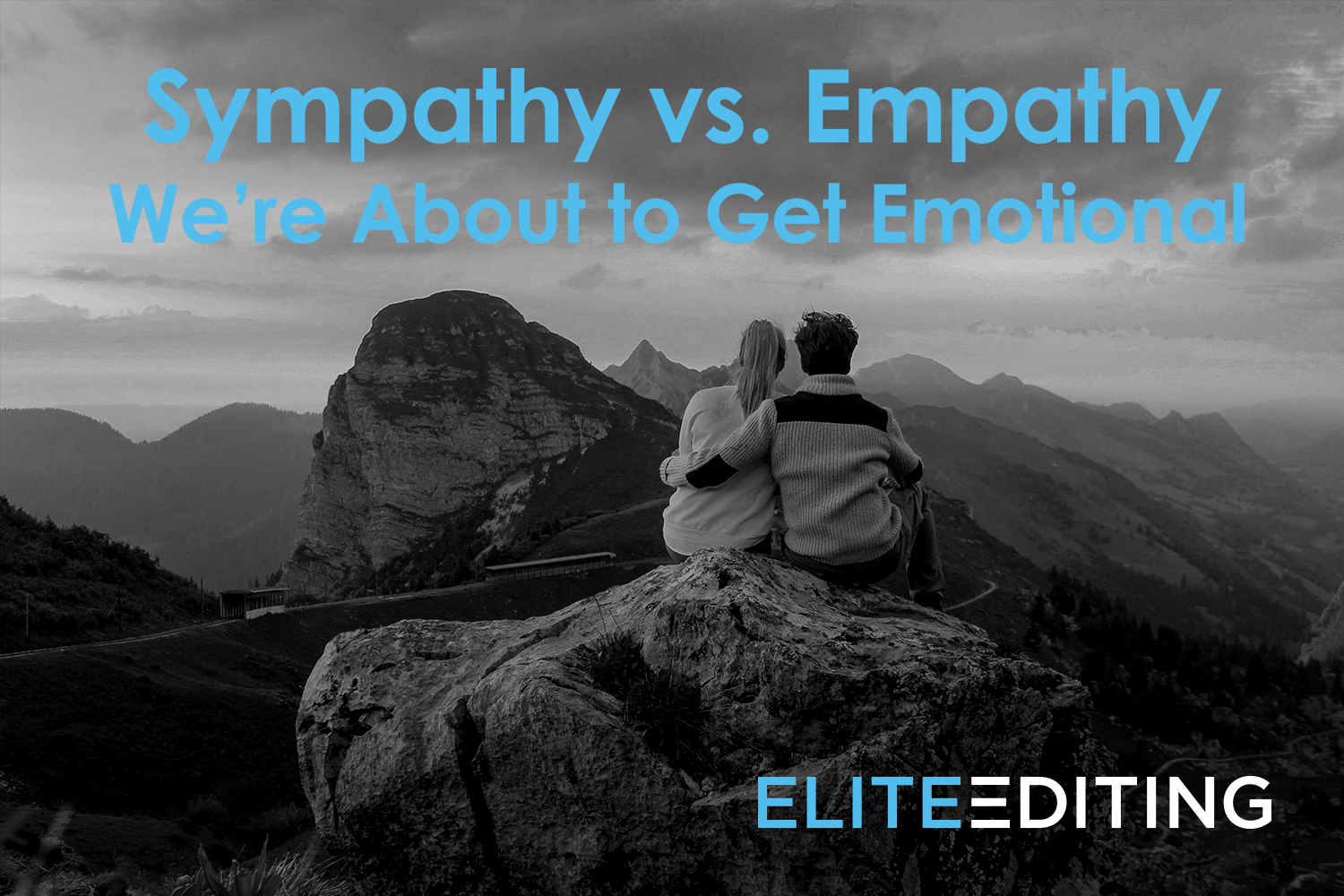
As an editor, I feel real sympathy—or do I mean empathy?—for writers wrangling with the complexities of English grammar—including figuring out sympathy vs. empathy—and which is better suited to a particular situation.
While not synonyms, sympathy and empathy are clearly related to each other, which means things often get a bit confusing, but one thing is for sure—it’s going to be an inherently emotional time whether or not you’re passionate about semantics.
Sympathy vs. empathy: How are they alike?
Let’s start with what makes sympathy and empathy similar. Both words are derived from the Greek word pathos, which means “feeling.” True to their linguistic roots, both sympathy and empathy deal with emotion—more specifically, how humans react to the emotions of other humans. Both words are more commonly associated with painful emotions like loss, sadness, and frustration, though this isn’t a requirement of their use.
Let’s use a simple (if grim) example to compare and contrast the two words. Your neighbor’s house burns down, and he and his family lost not just all their belongings but also the home they’ve lived in for years. Do you feel sympathy for their plight? Or empathy? Let’s find out.
Sympathy = emotional counterpoint
Sympathy refers to a sharing of emotion. If you are sympathetic toward your neighbor who just lost his home, you feel sad about his situation because he feels sad about his situation—your feelings are a reaction to his feelings and plight.
Most commonly, we feel sympathy for others when they experience loss or hardship. We send our sympathies to the family of someone who has died. If we so choose, we can even send those sympathetic thoughts in a sympathy card.
However, sympathy isn’t strictly tied to negative emotions. If you sympathize with a political, medical, or social cause, you share the drive and passion behind that cause. You might feel loyalty toward a group or organization, so you might have sympathy for that group. And although the term is rarely used in a positive sense, a person with sympathy for a particular (usually political) group without actually being a card-carrying member is sometimes termed a sympathizer.
Empathy = emotional harmony
Empathy takes sympathy a step further. If sympathy is a compassionate response to what another person is feeling, empathy is when you essentially inhabit the same emotional space. You share that person’s feelings—you’re walking that proverbial mile in his or her emotional shoes.
If you can empathize with your unlucky neighbor whose house has burned down, that suggests you’ve also experienced a similarly profound loss. You know how he is feeling; his emotions are intimately familiar to you.
In science fiction and fantasy literature, people who can sense the feelings of others—and sometimes even change those emotions—are called empaths, like Deanna Troi on Star Trek: The Next Generation. She can use her empathic talents to tell when people are lying, scared, or in love.
Here’s what it boils down to: Sympathy is when you feel for someone. Empathy is when you feel with someone.
List this post? Check out Meteor vs. Meteorite.







